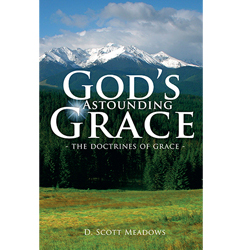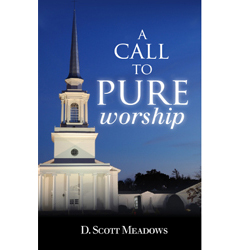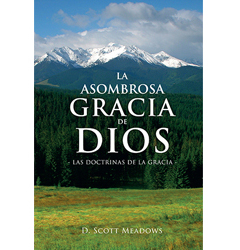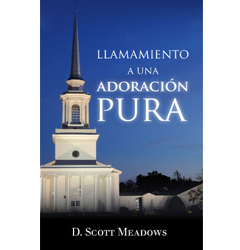

Pilate’s Excuses
D. Scott Meadows
When Pilate saw that he could prevail nothing, but that rather a tumult was made, he took water, and washed his hands before the multitude, saying, I am innocent of the blood of this just person: see ye to it (Matt 27.24).
We “believe . . . in Jesus Christ . . . [who] suffered under Pontius Pilate” (Apostles’ Creed). Besides being mentioned many times in the Gospels (and 3x in Acts [3.13; 4.27; 13.28]), Pontius Pilate will forever live in infamy because of the church’s earliest creeds (cf. 1 Tim 6.13), recited by many congregations around the world habitually in Lord’s Day liturgies. Christians see clearly that Pilate presided over the greatest injustice in human history: the crucifixion of the only begotten Son of God.
Even Pilate’s conscience convicted him that what he did was very wrong. In the climax of his deliberations, he implicitly admitted his guilt by declaring Christ’s righteousness and symbolically washing his metaphorically filthy hands for his complicity in the heinous act. We may wonder, “How, then, could Pilate go ahead anyway and hand over Jesus to be crucified?” The historical account reveals that Pilate was a wicked man who made excuses for his sins. His depraved example should expose our own tendency for excuse-making, along with our desperate need for forgiveness and spiritual renewal. We should crave divine forgiveness, heavenly wisdom, and strength to do right, even in the toughest circumstances.
What horrible excuses paved the way for Governor Pilate, in his own mind, to proceed toward Christ’s crucifixion? Lamentably, his excuses are still commonplace today in our wicked world.
1. Political expediency
From his miserable moral weakness and feckless fear of man, Pilate succumbed to social pressure. He “saw that he could prevail nothing,” that is, in his debate with the mob over the question of whether Barabbas the insurrectionist or Jesus the Christ should be released from legal punishment. Pilate argued that Jesus had done no evil justifying the harsh sentence against Him (v. 23). The mob produced no sound reason for it, only their bloodlust. Pilate also saw that “a tumult was made” by his proposal. He surely thought that he had a legitimate responsibility as Governor to maintain social order—but at what price? Is mob rule better than opposing the mob? Instead of standing against them like a man, upholding civic justice like a noble governor, and suffering any personal or political consequences necessary like an exemplary hero, Pilate took the easy route. He folded like a cheap suitcase.
One need not be a governor to indulge similar excuses for sinning. If we are administrative superiors over others, we sin by pandering to them, hoping to win or maintain their favor. If we are among administrative equals, we compromise to get along and to be well-liked. If we are underlings, we are obsequious to avoid disadvantages like punishment. All of this is “playing politics” in our social sphere, whatever our position in it may be.
The Lord says, “You shall not follow a crowd to do evil; nor shall you testify in a dispute so as to turn aside after many to pervert justice” (Exod 23.2). This moral law is known in substance even in the conscience of a Gentile like Pilate who may never have read it (Rom 2.15). “Following the crowd,” when the crowd is morally wrong, has worse consequences than the wrath of the crowd. It provokes the wrath of God! “Though hand join in hand, the wicked shall not be unpunished” (Prov 11.21). The crowd often makes the most depraved judgments and persecutes the few who dare to stand alone. Let us have the wisdom and courage to stand against them. As Paul said, “If I still pleased men, I would not be a bondservant of Christ” (Gal 1.10). Pilate was a man-pleaser, not a servant of Christ, and a terrible example for us.
2. Self-justification
In a dramatic gesture that remains iconic for the futility of self-justification, Pilate “washed his hands before the multitude, saying, ‘I am innocent of the blood of this just person.’” Pilate arrogated to himself, for his own supposed benefit, the prerogative of showing mercy and justice. He feigned the ability to cleanse himself from his sins and to vindicate himself against further charges of guilt. Like all unbelievers, he was suffering from the massive delusion of one who had suppressed the true knowledge of God (Rom 1.18-21).
No man can forgive his own sins or definitively declare his own righteousness. Acknowledging his sinfulness, Job said, “If I wash myself with snow water, and make my hands never so clean; Yet shalt thou plunge me in the ditch, and mine own clothes shall abhor me” (Job 9.30, 31). Pilate reminds us of Lady Macbeth’s futile hand-washing while she said, “Out, damned spot, out, I say! . . . Who would have thought the old man to have so much blood in him?” (Shakespeare, “The Tragedy of Macbeth,” V 1:37-42). Nor is it more effective for a true justification to pronounce our own righteousness before God. Paul wrote, “For I know nothing by myself; yet am I not hereby justified: but he that judgeth me is the Lord. Therefore judge nothing before the time, until the Lord come, who both will bring to light the hidden things of darkness, and will make manifest the counsels of the hearts: and then shall every man have praise of God” (1 Cor 4.4, 5). We will all have to wait until Christ’s return to learn for sure whom God counts righteous in His sight, whom He commends and whom He rewards.
The present culture of radical individualism and personal autonomy suffers the same delusion. To the extent it infects us, we imagine that we can make sufficient atonement for our own sins on our own terms and then pronounce ourselves righteous, and that this means something significant. In reality, as for Pilate, it only compounds our actual guilt before God. Give up trying to save yourself.
3. Blame-shifting
“See ye to it,” Pilate said. A paraphrase of the latter part of this verse reads, “I am not responsible for the death of this man! This is your doing!” Pilate aims to convince himself that he can be excused from his responsibility because many people stood in the way of his righteous deed. “So, really, the awful outcome is their fault. I would have released Jesus if my moronic subjects had let me.”
This is the oldest excuse in the Book, first offered by guilty Adam who blamed others for his own sin—first his wife, and even God! “The woman whom thou gavest to be with me, she gave me of the tree, and I did eat” (Gen 3.12). The accusation against God is blasphemous in the highest degree. Yes, Eve had her own culpability, but Adam was personally responsible for his own part in what they had done. So was Pilate. So are we. Do not blame the devil or society or anyone else for your sins!
This blame-shifting impulse is still ingrained in us, even in the most godly believer. Yet it is unreasonable, unrighteous, and unscriptural. The gospel assures us that owning and confessing our sins to God with contrition and faith in Jesus is a sign that our sins are forgiven (Prov 28.13; 1 John 1.9). People are terrified to admit their guilt on account of a lack of trust in the Savior, Jesus Christ. As those who belong to Him, we habitually confess our sins and are assured of salvation. Ω
All Rights Reserved. Used with permission. No part of this article may be used or reproduced in any manner whatsoever or translated without written permission.
The following books by D. Scott Meadows are available at Trinity Book Service and Cristianismo Histórico:
Ebook: A Call to Pure Worship | D. Scott Meadows




